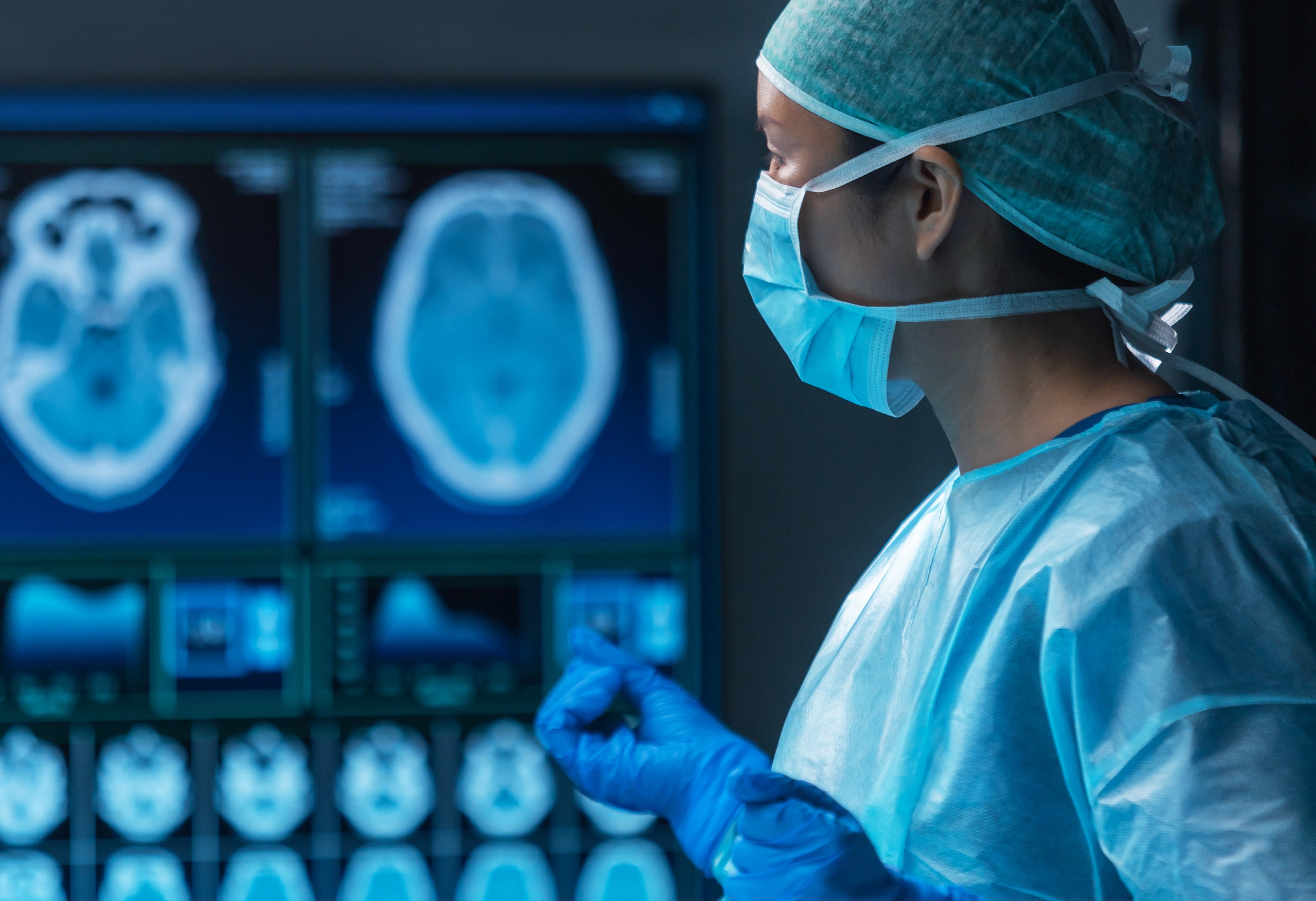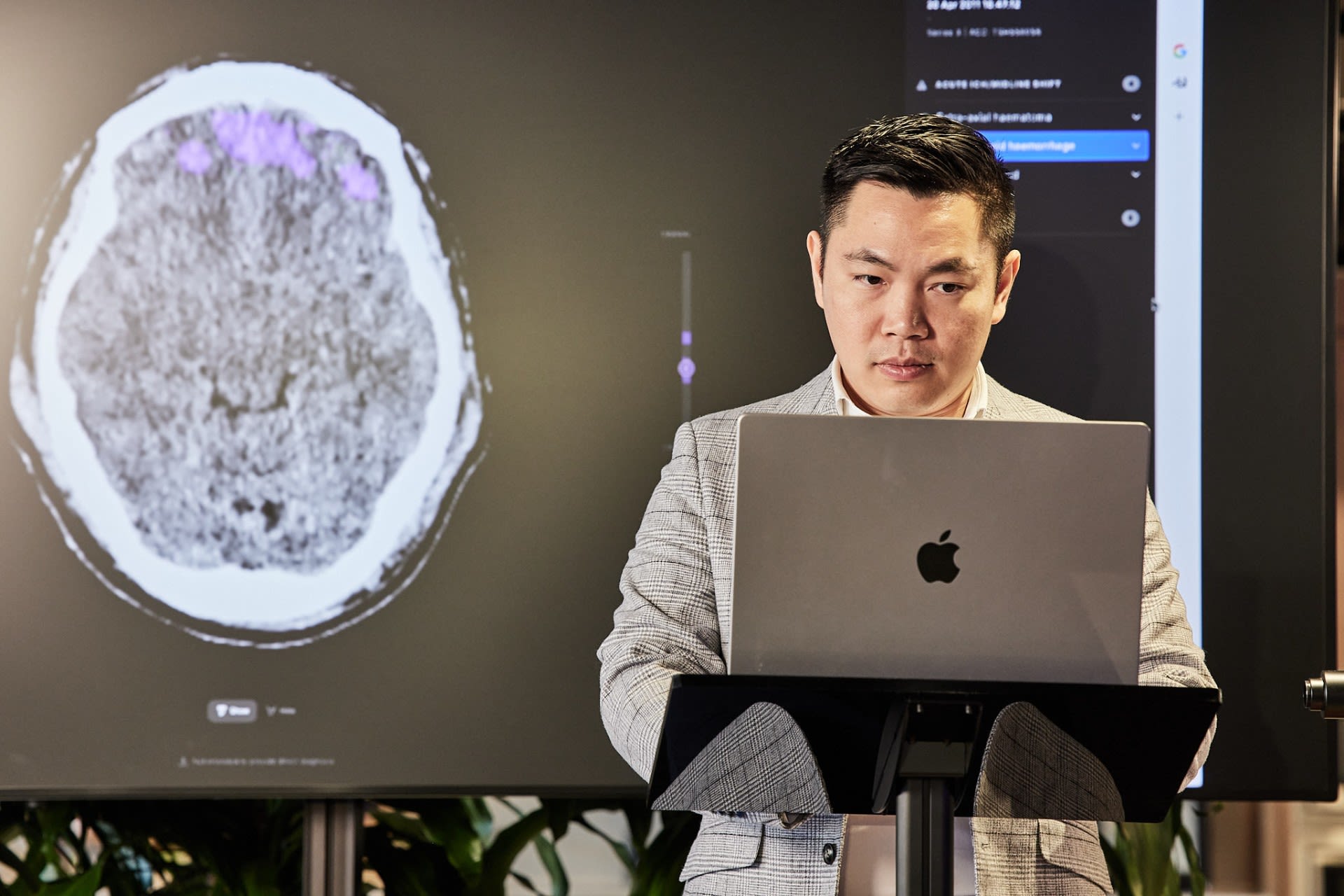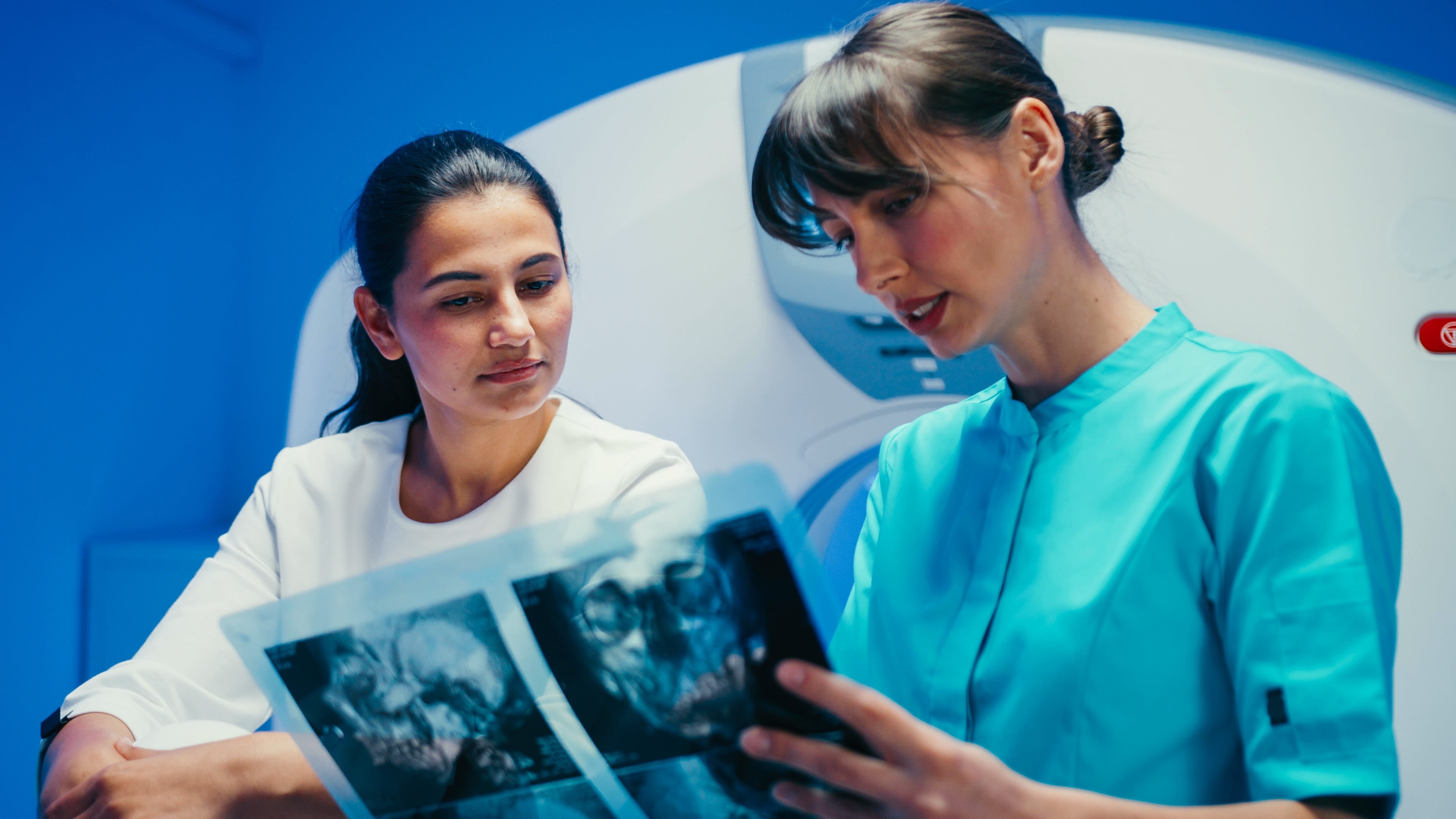
Lung cancer kills more Australians than any other cancer. A Bond University graduate is giving doctors a second set of eyes to catch it early.
Artificial Intelligence, the doomscrollers warn, could spell the end of humanity as we know it. But there’s another side to the story – it’s already saving lives.
Bond University alumnus Dimitry Tran (Class of 2005) is co-founder of Harrison.ai, alongside his brother Dr Aengus Tran. Their company builds AI tools that support clinicians by analysing chest X-rays and brain CT scans, identifying abnormalities that might otherwise be missed by human eyes.
Speaking at a Bond Health Presents session, Dimitry Tran said Harrison.ai encountered scepticism from the medical fraternity when it was launched in 2019.
"[People were asking] is it going to help me? Is it going to slow me down? Is it going to take my job?"


"[People were asking] is it going to help me? Is it going to slow me down? Is it going to take my job?"


Faster scans, better outcomes
There’s a global shortage of 1.5 million radiologists and pathologists, leaving hospitals overwhelmed by backlogs – including more than 50,000 scans waiting to be read at a metro Sydney hospital alone. Harrison.ai cuts waiting times for scans from days or weeks to just a few hours. That could be the difference between a stage one and a stage two cancer – and a massive boost in survival rates.
In Scotland, where the technology has been deployed for several years, detection of treatable stage one lung cancers has improved by 12 percent. In Australia, where lung cancer is the leading cause of cancer death, faster diagnosis could mean thousands more lives saved each year.
Yes, but...
While AI accelerates detection, it is not a replacement for human judgment, Mr Tran says.
“AI should never be the first decision-maker. Clinicians should make their own assessment, then use AI to check it.”
He says AI is like a safety net: always on, always available, and never getting tired. “A radiologist told me, ‘I’m better than AI, but not every hour of the day.’ That’s exactly the point – AI plus a human is better than either one alone.”
Teaching the doctors of tomorrow
Mr Tran addressed concerns that AI might weaken the skills of trainee clinicians.
“AI can expose students to rare and complex cases they might never encounter in real-world rotations,” he says.
“With AI, a fifth-year medical student can learn from hundreds of examples of conditions that would otherwise take years to see.”
For example, Harvard Medical School uses AI to expose students to rare diseases they would otherwise never see during rotations.
From startup to global player
Harrison.ai has raised almost $250 million from investors, with the latest Series C round funding the company’s expansion into the US market. The Australian government has taken a $32 million stake in Harrison.ai through the National Reconstruction Fund, aiming to keep the company based in the country.
Meanwhile, the Tran brothers recently debuted on the Financial Review Young Rich List and were named among Australia’s Top 100 Innovators of 2025 by The Australian newspaper.

The Vietnam connection
While Harrison.ai expands globally, Mr Tran hasn’t forgotten his roots in Vietnam. He moved to Australia in 2003 to attend high school and later completed a Bachelor of Commerce/Bachelor of Finance at Bond University. He recently relocated to the US to launch Harrison.ai there but remains deeply connected to his country of birth.
A few years ago, he and his team deployed their AI on Thanh An Island near Ho Chi Minh City, demonstrating how it could improve patient care in remote settings. The island is at the mouth of the Saigon River, surrounded by mangrove forests.
“A lot of the time you can't get radiologists to move and work in those areas,” Mr Tran says.
“Having the AI means they have world-class radiology services permanently based there.”
Mr Tran continues to give back to Bond University through his role on the Faculty of Health Sciences and Medicine Advisory Board.

Transforming treatment
Mr Tran says Harrison.ai solutions are used in more than 20 countries and by half of all Australian radiologists. One third of chest X-rays handled by the NHS in England are scanned by Harrison.ai, he says, and the company had touched the lives of millions of patients to date.
“We recently got a chance to deploy our AI in the Gold Coast University Hospital,” Mr Tran says.
“So if Bond University (medical) students are doing their practical work there, they will hopefully be exposed to our AI on a chest x-ray or a CT solution.”
What's next
Harrison.ai is currently developing AI for CT chest scans, just in time for Australia’s new national lung cancer screening program which will screen hundreds of thousands of people each year using low-dose CT.
“We have a new generation of AI that uses transformer-based, or ‘generative’ technology, similar to ChatGPT,” Mr Tran says. “It doesn’t just analyse the image; it drafts a report that the radiologist can review and edit.”
With AI and human expertise working hand in hand, more patients will be getting life-saving answers, faster.
Published on Wednesday, 5 November, 2025.
Original thinking direct to your inbox

Stories from Bond